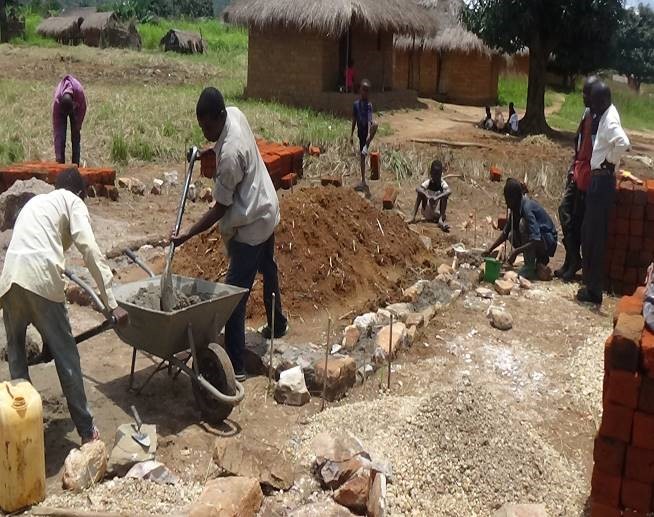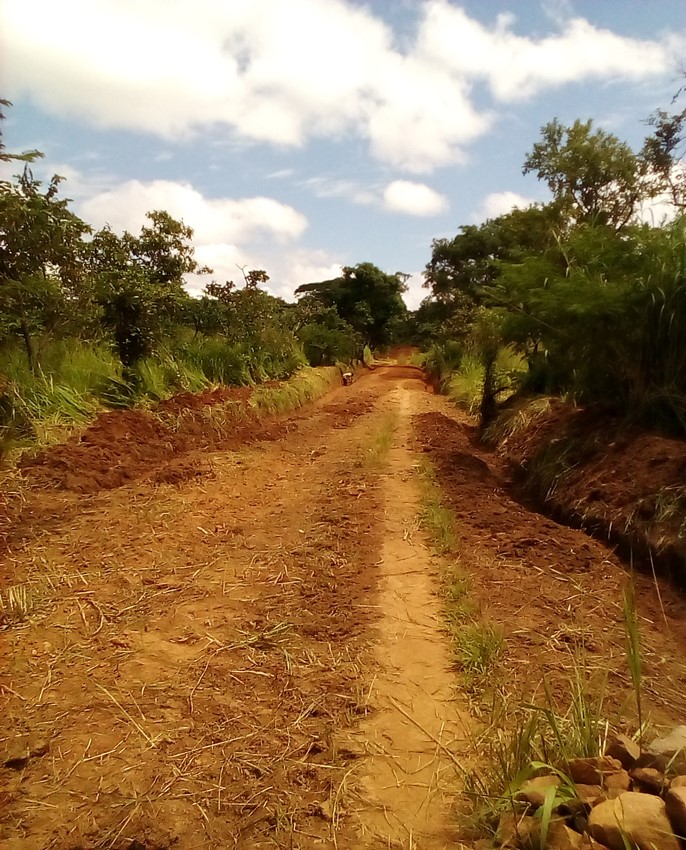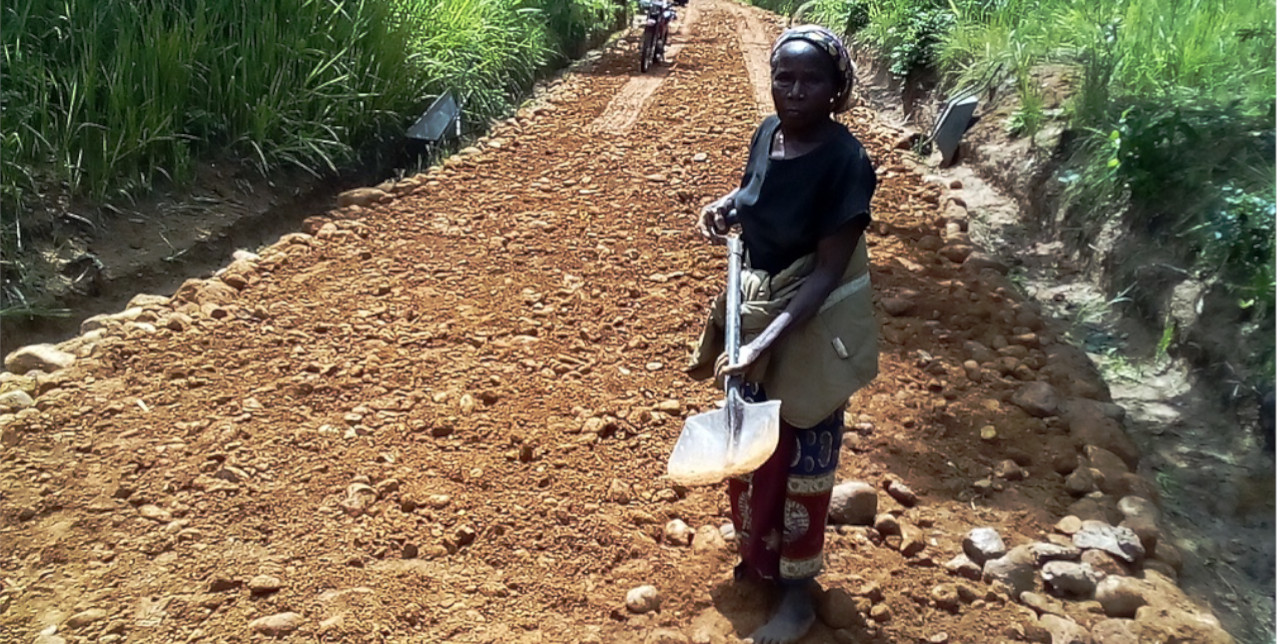08-04-2020 | di COOPI
RDC. Infrastructures guarantee food security for 90,000 people
The Democratic Republic of the Congo – 15 kilometres road to access to the Upemba National Park, 9 veterinary pharmacies and 3 retail spaces are the functional infrastructures underway or completed in March 2019 thanks to COOPIsupport, in the framework of the project “Food security and nutrition for the population living near the Upemba National Park (PNU) in the territories of Mitwaba and Malemba N'Kulu”, funded by the European Union.
These infrastructures will promote local populations’ food security and they will guarantee the national park’s safeguard. This will be possible since infrastructures will increase movements’ capability in a marginalized and isolated area, allowing the park rangers to tackle poaching and the communities to give a boost to the socio-economic activities already promoted by the project.

Buildings under construction
Activities such as the seeds and animals’ distribution, microcredit and awareness session on food security will reach their objectives thanks to the infrastructures. Indeed, they will strengthen the autonomy and economic stability of 90,000 people.
As an example, thanks to COOPI support, AVEC (Saving and Credit Association) members were able to use their weekly savings to start up income-generating activities, such as a shop for agricultural products and a veterinary pharmacy to sell medicines for goats and oats. Moreover, roads’ rehabilitation guaranteed 600 temporary jobs, eased goods’ transportation and strengthened the skills in protecting the Upemba National Park.
Thus, infrastructures will guarantee a food alternative to the national park resources, increasing beneficiaries’ food security and safeguarding protected natural areas.
Since 2017, COOPI, together with the European Union, is fighting against one of the biggest challenges for the 20 villages next to the National Park: the lack of socio-economic infrastructures such as roads and shops.

The new road
During the last 15 years, infrastructures’ poor conditions together with other factors such as poverty and epidemics (measles and cholera) were worsened by the constant armed conflicts. This had weakened the already fragile socio-economic network and affected food supply and small-scale trade, resulting in an alarming level of food and nutritional insecurity.
Moreover, climate change worsened the situation causing floods and inundating roads, decreasing food supplies and isolating entire villages. COOPI intervention aims to make local populations more resilient to shocks in the long term.




 Dem. Rep. of Congo
Dem. Rep. of Congo